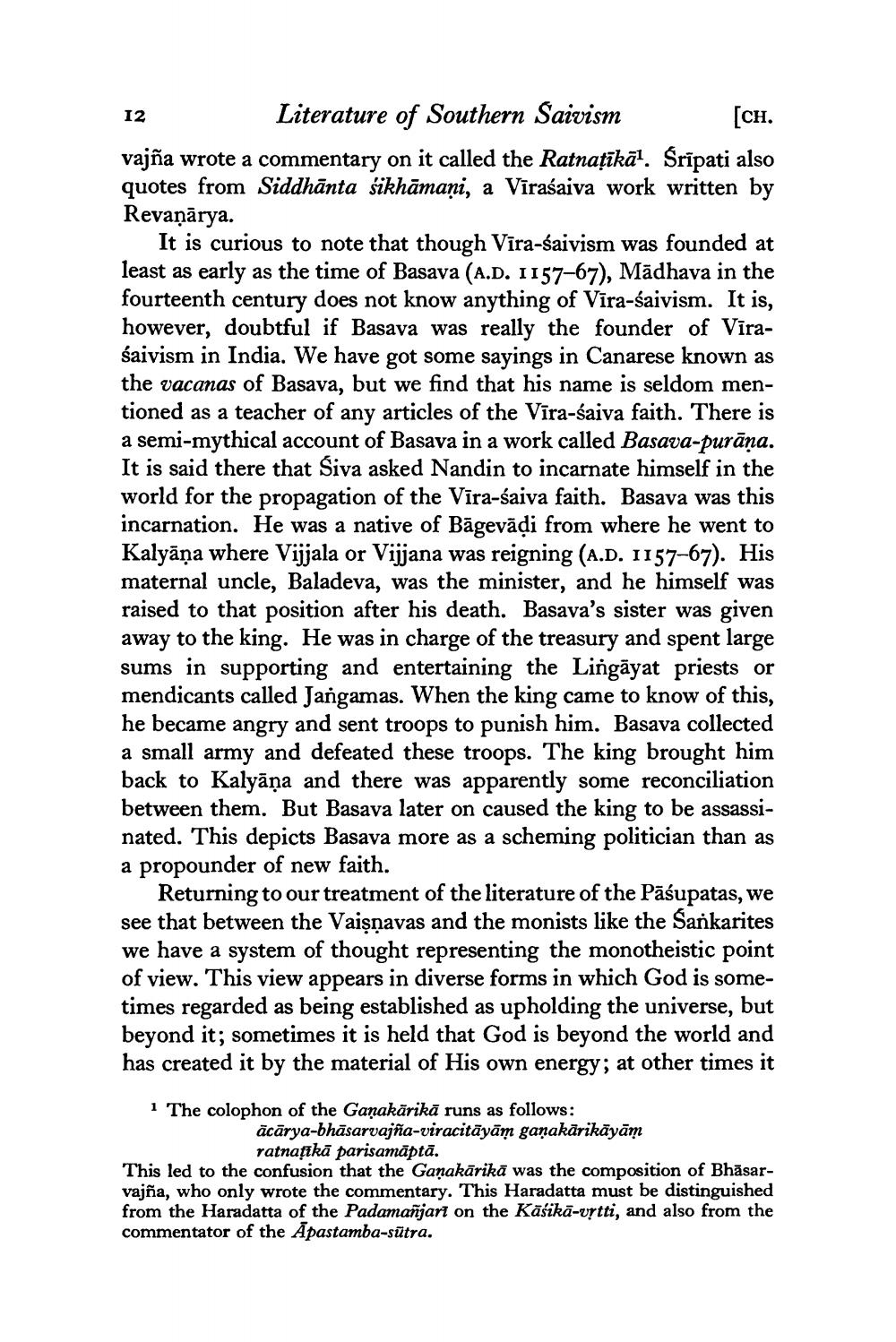________________
12 Literature of Southern Saivism
[CH. vajña wrote a commentary on it called the Ratnațīkāł. Śrīpati also quotes from Siddhānta śikhāmaņi, a Vīraśaiva work written by Revaņārya.
It is curious to note that though Vīra-saivism was founded at least as early as the time of Basava (A.D. 1157–67), Mādhava in the fourteenth century does not know anything of Vīra-saivism. It is, however, doubtful if Basava was really the founder of Viraśaivism in India. We have got some sayings in Canarese known as the vacanas of Basava, but we find that his name is seldom mentioned as a teacher of any articles of the Vira-saiva faith. There is a semi-mythical account of Basava in a work called Basava-purāņa. It is said there that Siva asked Nandin to incarnate himself in the world for the propagation of the Vira-śaiva faith. Basava was this incarnation. He was a native of Bāgevādi from where he went to Kalyāṇa where Vijjala or Vijjana was reigning (A.D. 1157-67). His maternal uncle, Baladeva, was the minister, and he himself was raised to that position after his death. Basava's sister was given away to the king. He was in charge of the treasury and spent large sums in supporting and entertaining the Lingāyat priests or mendicants called Jangamas. When the king came to know of this, he became angry and sent troops to punish him. Basava collected a small army and defeated these troops. The king brought him back to Kalyāṇa and there was apparently some reconciliation between them. But Basava later on caused the king to be assassinated. This depicts Basava more as a scheming politician than as a propounder of new faith.
Returning to our treatment of the literature of the Pāśupatas, we see that between the Vaisnavas and the monists like the Sankarites we have a system of thought representing the monotheistic point of view. This view appears in diverse forms in which God is sometimes regarded as being established as upholding the universe, but beyond it; sometimes it is held that God is beyond the world and has created it by the material of His own energy; at other times it
1 The colophon of the Gaņakārikā runs as follows:
ācārya-bhāsarvajña-viracitāyām gañakārikāyām
ratnațīkā parisamāptā. This led to the confusion that the Ganakārikā was the composition of Bhāsarvajña, who only wrote the commentary. This Haradatta must be distinguished from the Haradatta of the Padamañjart on the Kāśikā-urtti, and also from the commentator of the Āpastamba-sütra.




